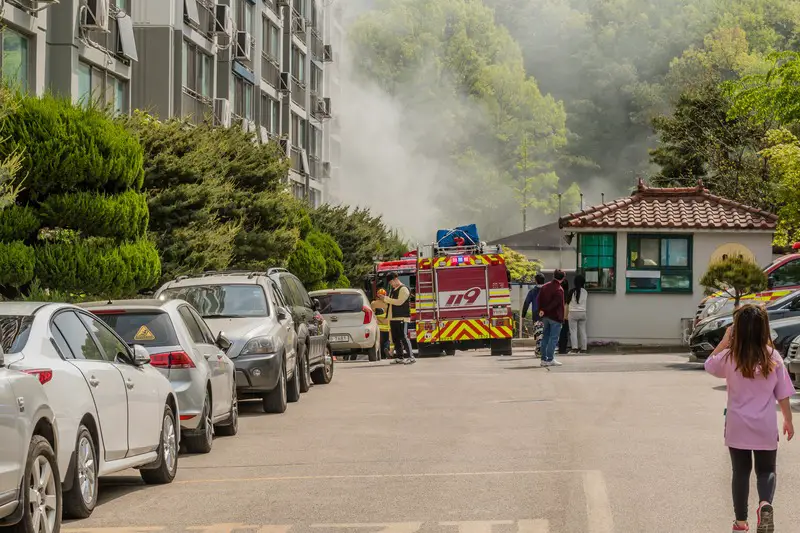A devastating fire broke out in a lithium battery factory in Hwaseong, South Korea on June 24, 2024. The inferno resulted in the unfortunate deaths of 22 workers, following a series of explosions in a warehouse housing 35,000 battery cells. The fire rapidly escalated, causing extensive damage.
The fire was initiated around 10:31 a.m. and was largely doused in close to six hours. The factory, managed by primary battery producer Aricell, is located in Hwaseong, a central industrial hub roughly 90 minutes southwest of Seoul. The victims included 18 Chinese workers, two South Koreans, and one Laotian. Two people suffered severe burns and are currently under medical care.
The precise cause of the explosions remains undetermined. However, experts propose that materials used in the batteries likely caused the rapid propagation of the fire. “Battery materials like nickel are easily flammable, so the fire probably spread too quickly for workers to escape,” observed Kim Jae-ho, a Fire and Disaster Prevention professor at Daejeon University. Officials suggested that the victims may have succumbed quickly to toxic gases released during the explosion.
South Korean President Yoon Suk Yeol visited the incident site to supervise the response operations and extend condolences to the bereaved families. Interior Minister Lee Sang-min highlighted the necessity to prevent hazardous chemicals from contaminating the nearby areas, stressing the government’s concern about environmental and public safety.
This incident underlines the persistent safety concerns in South Korea’s industrial sector despite recent legislative measures to enhance conditions. South Korea has witnessed several fatal industrial accidents in the past, often due to negligence and inadequate safety precautions. The government introduced laws holding company executives accountable for fatal accidents two years ago, to foster corporate responsibility and worker safety.
The factory, established in 2020, manufactured lithium primary batteries for sensors and radio communication devices. Aricell is majority-owned by S-Connect, whose shares plunged by 22.5% following the incident. The tragedy has raised questions regarding the safety standards in the burgeoning battery production industry, which plays a vital role in the global supply chain for electric vehicles and renewable energy storage.
In the aftermath of the incident, the South Korean government has proposed stricter safety measures for energy storage systems (ESS). These measures encompass the installation of ground-fault detectors, fire extinguishing systems, and devices to control internal pressure in battery cells during thermal runaways. These steps are designed to avert similar incidents and enhance the overall safety of battery production and storage facilities.











